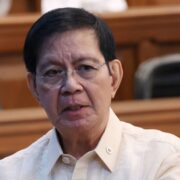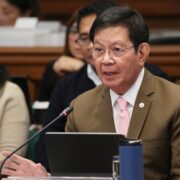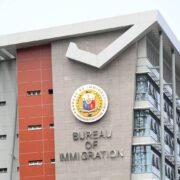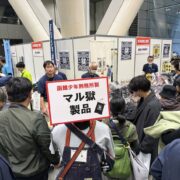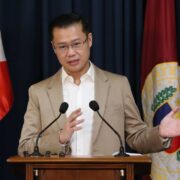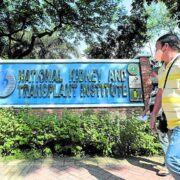For once, swift justice

Like many other criminal cases in this country, which by and large end up languishing in court for years, even decades, the indictment brought against dismissed Bamban, Tarlac Mayor Alice Guo had soon faded from memory.
Just over a year ago, in August 2024, Guo was stripped of her mayoral post by the Ombudsman for grave misconduct. The basis? Her involvement in the nefarious activities of a raided Philippine offshore gaming operators (Pogo) compound built on property she acknowledged to have previously owned.
The criminal complaints lodged against her in court were more damning. Guo, along with a number of cohorts, was accused of human trafficking, following the discovery of over 700 workers of various nationalities in the Chinese-run Pogo hub erected right behind Bamban’s city hall. The trafficked workers—aside from Filipinos, there were Malaysians, Indonesians, Chinese, Vietnamese, Taiwanese, even Rwandans—said they were forced to engage in online scams under pain of violence and torture. Papers found in the sprawling complex of some 36 buildings, including multistory offices and upscale villas, indicated that the company behind the property was owned by a familiar name in town: Alice Guo, the mayor herself.
Implausible tale
But who was this woman? When Sen. Risa Hontiveros took a closer look, she—and the rest of the country—was shocked at what she found. In multiple hearings at the Senate, the country was gripped by the revelation that Guo appeared to be not a Filipino at all. She couldn’t recall her childhood or her schooling, spinning an implausible tale of having been raised by her lonesome in an isolated farm, with only a “Teacher Rubilyn” as companion.
That she had risen from mysterious obscurity to become mayor of a town that had hosted a major Chinese-operated illegal business spawned questions with direct implications on national security: Could Guo be a Chinese spy? Was she a “sleeper asset,” embedded in the country at a time when tensions between the Philippines and China were simmering over the latter’s aggressive actions in the West Philippine Sea? Most alarmingly, how many more Alice Guos were there in government, business, and other institutions in Philippine life?
Guo strenuously insisted she was a Filipino, but investigation by authorities eventually disproved her claim. Based on fingerprint and immigration records, Guo was in fact a Chinese citizen named Guo Hua Ping who came to the Philippines in her teens, and passed herself off as a Filipino with forged documents.
Commendable job
The question of Guo’s possible involvement in espionage on China’s behalf remains unanswered. Beijing itself has remained mum on the subject. But on Guo’s culpability in the human trafficking case, the Pasig City Regional Trial Court recently rendered its verdict: Guilty. Along with seven others, Guo was sentenced to life in prison. She still faces pending criminal cases for graft and money laundering.
Guo’s conviction after just over a year of legal proceedings represents a rare occurrence in the country—swift justice. It’s a shaft of light in a dispiriting landscape where thieving politicians and many others in power evade accountability through the long game of endless delays and interminable court cases.
But this time, the prosecuting authorities appeared to have done a commendable job: The speedy resolution of Guo’s human trafficking case could only have been the result of proper and robust case-building on the part of investigators, government lawyers, and others behind the case—showing that, when done conscientiously, the work of pursuing justice need not be a corrupt, cynical, ultimately hopeless exercise in this country.
Criminal network
Hontiveros deserves credit for uncovering Guo’s mysterious background, and for her unyielding persistence in getting to the bottom of the criminal network Guo had planted in Bamban. Hontiveros and Sen. Sherwin Gatchalian did much of the yeoman’s job of digging through documents and records to piece together the brazen, yearslong deceit and treachery apparently orchestrated to install a foreign national in a seat of power in the Philippines.
This saga, however, is not over yet. Cassandra Li Ong, an associate of Guo who was similarly charged with human trafficking and was supposedly detained by the House for contempt, is now nowhere to be found. Fugitive Harry Roque, who like Ong is charged with human trafficking for his role in another Pogo hub in Pampanga, Lucky South 99, is fighting deportation from the Netherlands where he fled at the height of the Pogo investigations.
The government has cancelled the passports of Ong and Roque, and the authorities must ensure that they are brought back to the country to face their day in court. The same rigor applied to Guo’s case must now be employed to bring these two to justice—to ensure that the welcome convictions obtained so far in this murky criminal undertaking were not simply a fluke.


